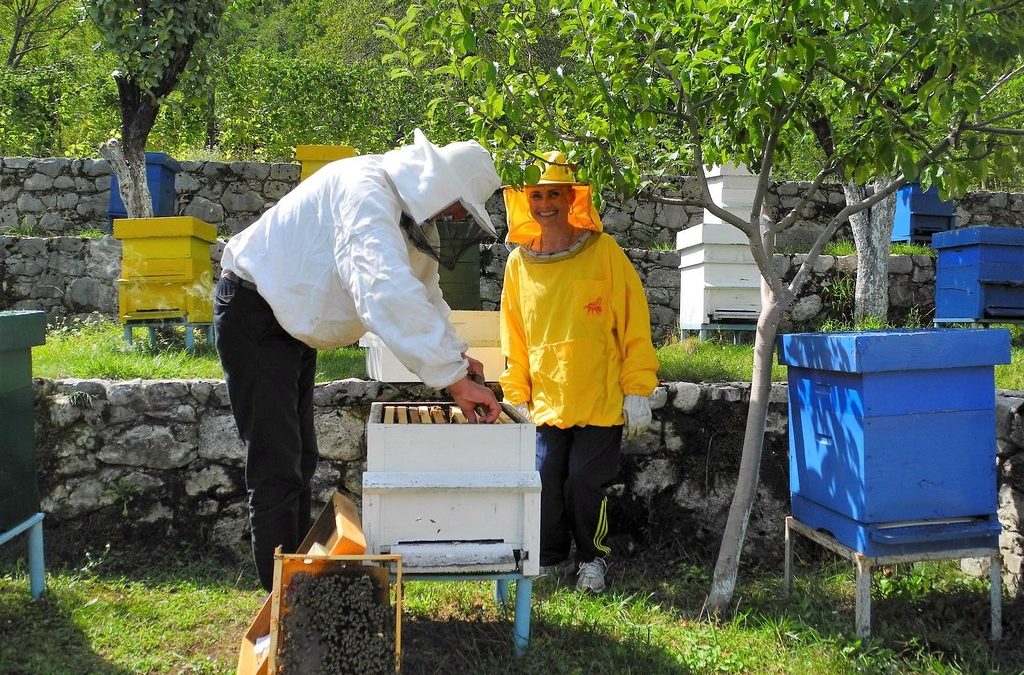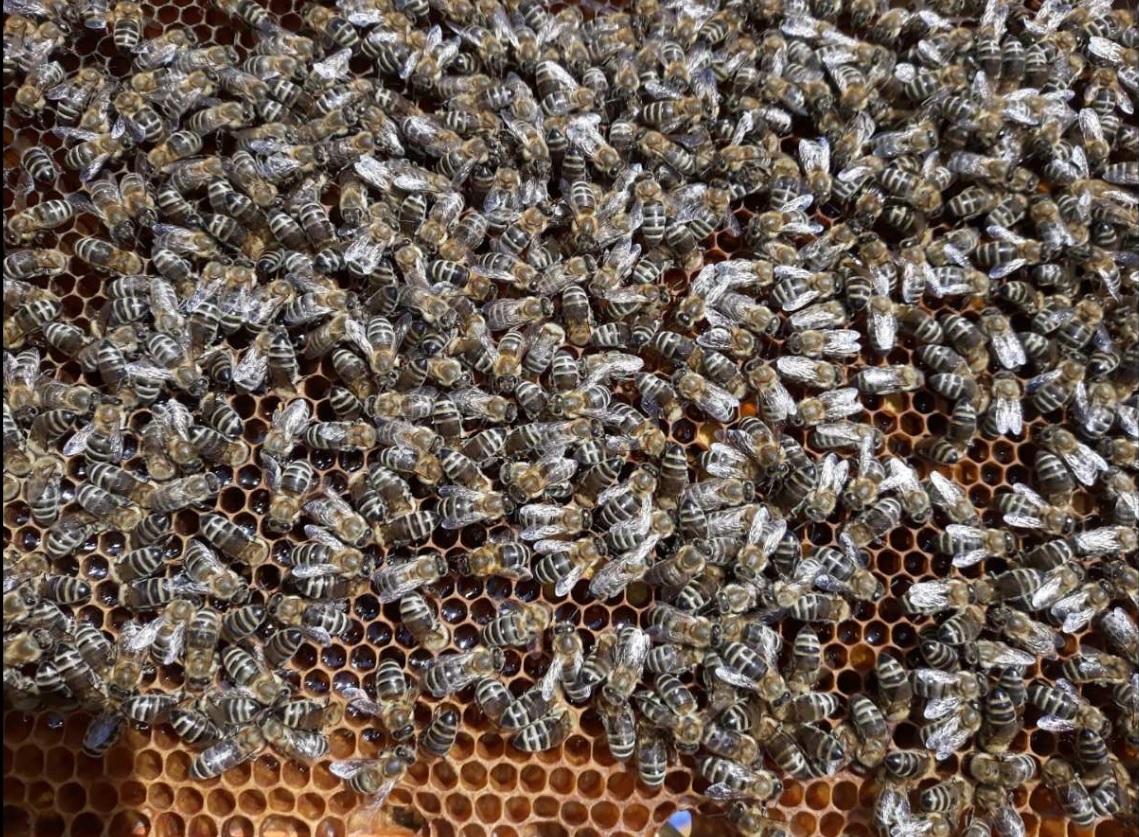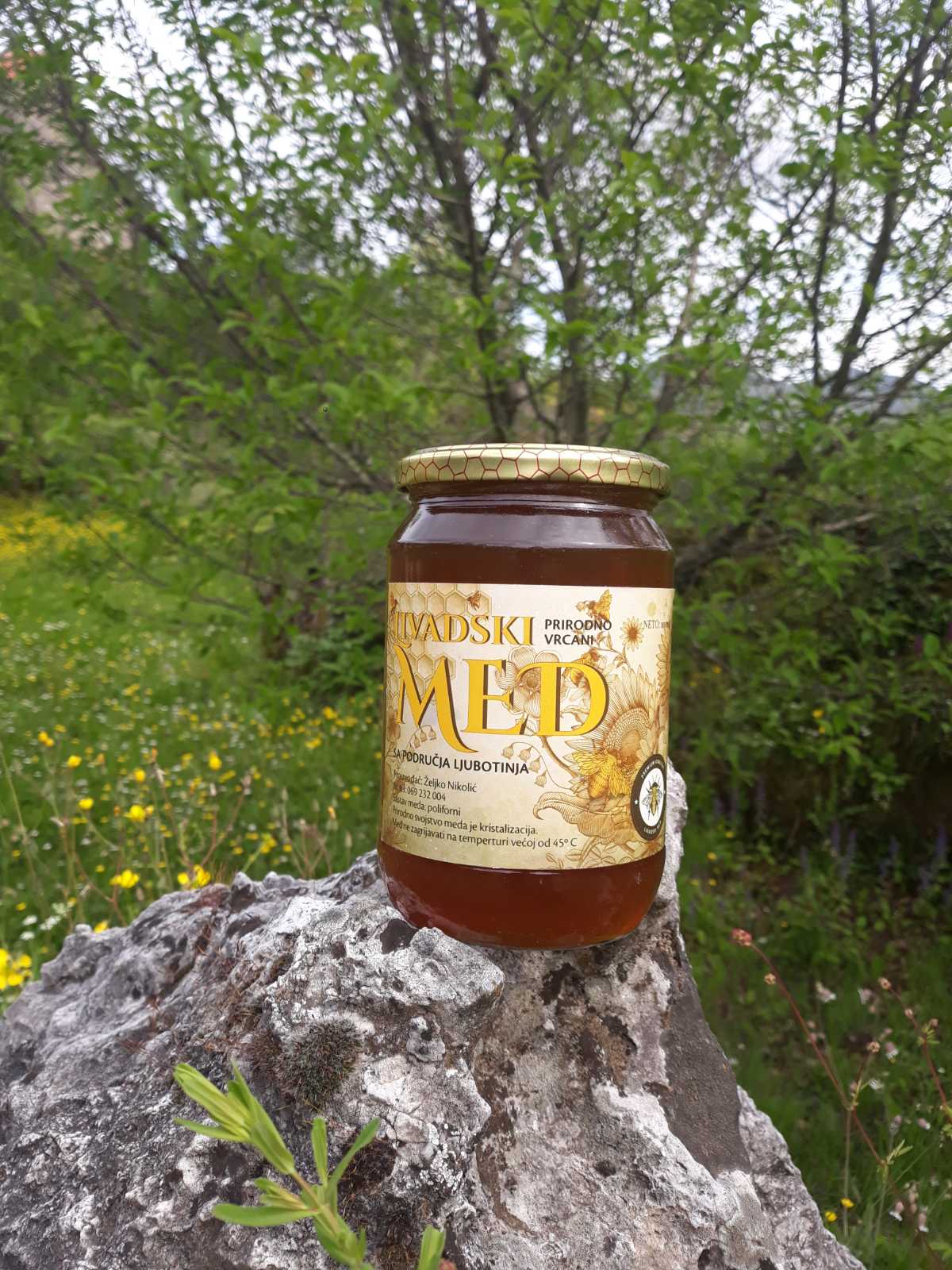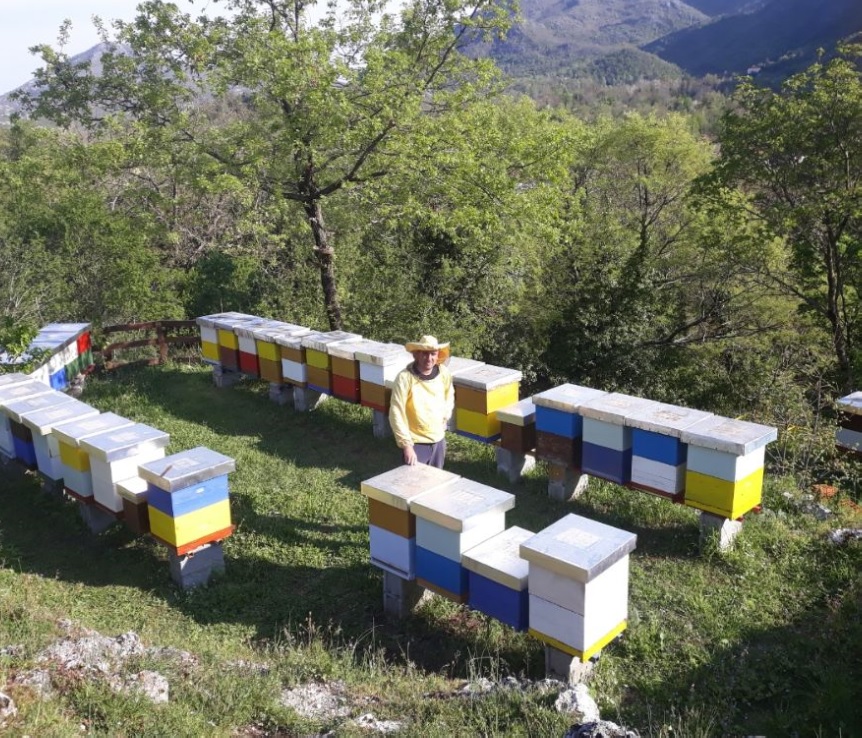Interview with a beekeeper
Some of you who already enjoyed tailor made travel in nature with us last couple of years got to try a bit of locally produced honey found in our welcome packs. Now we’re introducing you to Zeljko, young beekeeper from Cetinje, who will tell you more about this hobby of his that he practises with great passion.
MEA: Tell me about yourself and how you started out beekeeping?
Zeljko: Beekeeping is a hobby of mine. I started beekeeping 9 years ago, and it wasn’t something I actually planned. I really like countryside and I have a family house and some land in a small village in the Skadar Lake hinterlands, at some 340m of elevation. So I was talking to another experienced beekeeper from Virpazar about my village and he saw some potential there I guess (area rich in sage, bramble, linden, heather and lots of meadow flowers) so he gave me as a present my first hive. Since I love the nature and spending time in the countryside, I decided to give it a go.
MEA: When you first learned about beekeeping did you teach yourself or have you had mentors?
Zeljko: Initially I had the mentor, and it was an old beekeeper who initiated me into the beekeeping and I got some advice also from my uncle, to get to know the basics.
MEA: What about now? What are your main sources of information about bees and beekeeping?
Zeljko: I am learning through reading books and articles on the internet. Also there are seminars run by local beekeepers’ society and also national association of beekeepers, usually there are three per year, and I am always eager to hear the word of advice from older experienced beekeepers.
MEA: What is a typical day like as a beekeeper? Does it change seasonally?
Zeljko: Yes, my typical day depends on the season. Spring works that I do currently start from the early morning – monitoring the bee society, control of the food within the hive, quality of queen bee, quantity of bees, now is the time of the expansion of hives, so I add an extra “floor”, 10 new frames in the hive. In about a month time when bees spread to the new space and reach their maximum, I limit the queen bee to the “ground floor” where the new floor is used to storage honey. The trick to control their urge of reproduction is to keep the bees busy by taking vax and replacing the frames with new empty ones. This occupies them until the honey harvesting season. In this area it is usually around July 10, and only once a year (vegetation stops to flourish around that time, maybe in the north of the country it happens a bit later, but no later than beginning of August). Finally, I start the preparation for the winter around mid-August and until November my job is to assist bees in preparation the enough supplies to get through the winter. That’s the time when bees reduce the numbers, so they would have more storage space in the hive (instead of usual eight frames of litters of larvae, it goes down to just three).
MEA: What is the lifespan of bees? Can you tell us more about the life in the hive and hierarchy?
Zeljko: Bees normally live up to 40 days. However, bees that are born before the winter time are those who are meant to stay over the winter to prepare the society for the new spring so they live longer, since they work less and hibernate more. Queen bee can live from one to seven years. In case queen bee gets old the bees incubate the new queen bee which kills the old and takes over the control over the society. In case the old bee queen is still strong this procedure brings division in the society and beekeeper uses new queen to extend and make the new society. In case queen bee suddenly gets sick or dies it takes six hours for bees to notice its absence (the amount of pheromones it emits lasts that long) and then bees work on incubating the new queen bee, whose birth takes 12-14 days. During the absence of queen bee in the society, life is more quiet, activity drops due to the lack of pheromones which push the bees to work.
MEA: What are your favourite and least favourite parts of beekeeping?
Zeljko: I enjoy the most April-May when I help the society to develop and then mid-July for the honey harvest part. What I like the least is when I need to fight against some disease that attacks the bees (varroa destructor, parasite the most common one). Medicine I use are herbal in summer months, while in the wintertime main treatment for varroa is oxalic acid.
MEA: Do you ever get stung? Or maybe I should ask, how often are you stung?
Zeljko: Every time I am around the bees I got stung. Normally no more than a couple, but if they are aggressive it can go up to dozen times or more. It all depends on their mood, and that again is related to the weather (windy time, cold weather), so you can say that bees are metheoropathic.
MEA: What type of bees do you keep?
Zeljko: I have two types of bees – Italian bee and Carnolian bee. Carnolian bee lives more easily through the winter and collects bigger amount of honey, while Italian bee is better for reproduction, makes more new bees. I think in Europe there is over 40 different types of bees.
MEA: How many beehives do you have?
Zeljko: You know, we beekeepers are a bit superstitious, you will never hear one to tell you exactly how many there are, it’s always “around”, so me as well I have around 40 beehives 😊
MEA: How much honey do you produce and sell?
Zeljko: One bee society can make in average 15-20 kg of honey if it is a good year with some favourable weather conditions.
MEA: Do you sell anything else? What about beeswax?
Zeljko: I do have beeswax, propolis, and perga (also referred to as bee bread, it’s actually fermented pollen, bees bring it into the hive raw and then add some proteins and acids so after 14 days it ferments and then they cover it with honey to preserve it that way).
MEA: Do bees ever get harmed in the apiary?
Zeljko: Main bee enemies are hornets and European bee eater (Merops apiaster), a type of bird that eats bees, very colourful and mainly attacking bees close to Adriatic coastline.
MEA: What advice would you give to people who want to keep bees?
Zeljko: The most important thing is love for the nature, because bees are the nature, without them life on the Earth wouldn’t be possible. Of course, you need to invest some money and time but it definitely pays off if you do it sustainably.
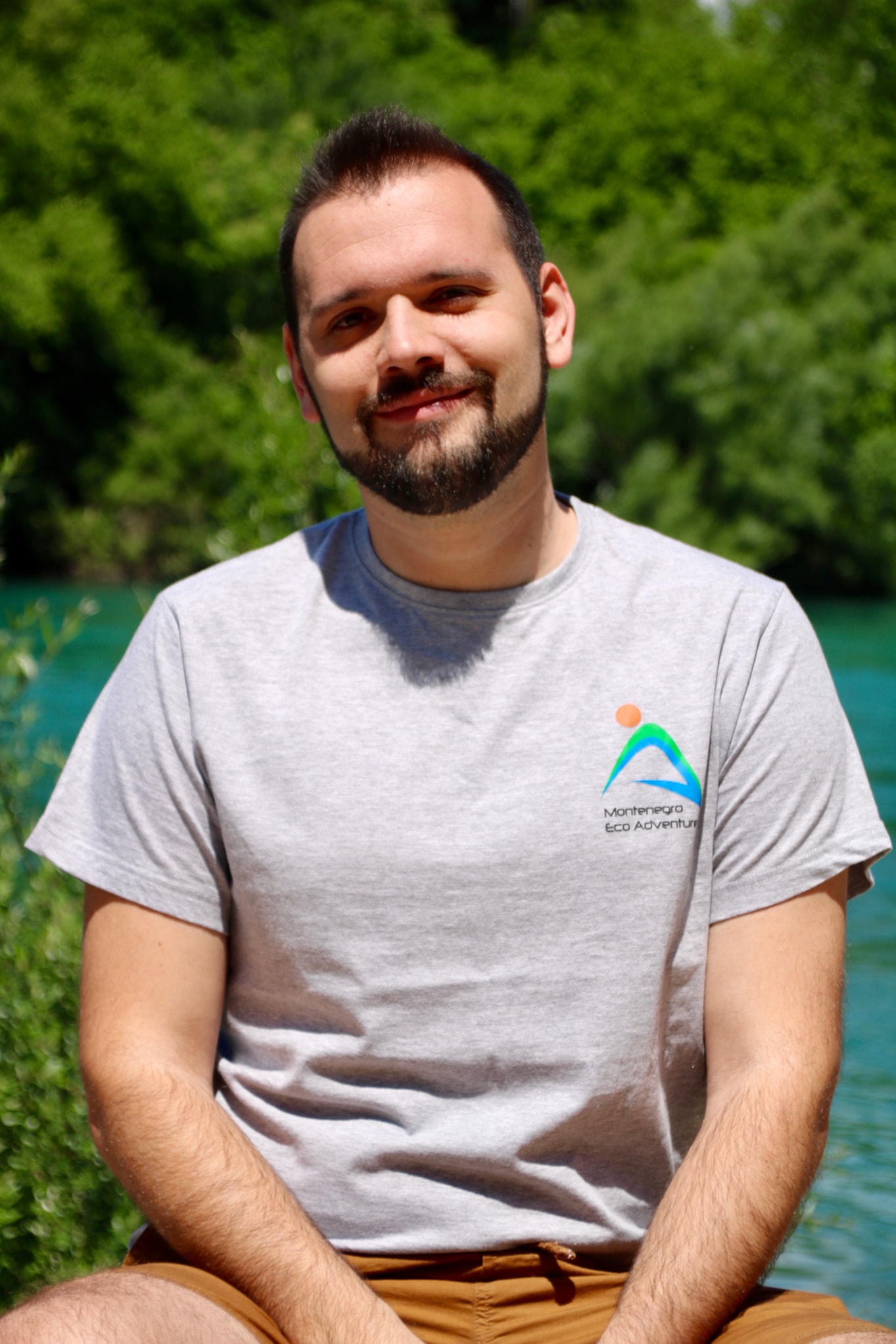
A word about the author
Originally from Cetinje, the ancient and charming capital of Montenegro, our expert Nikola (or “Nik”, for friends) is the Operations Manager within Montenegro Eco Adventures. He loves to travel, always learning more about his own country (which he already knows in his pocket). This optimistic guy with pleasant nature has some advice for travelers: “Go and meet the Montenegrins. Taste the delicious local food and be careful on the road as the locals drive fairly quickly!”

